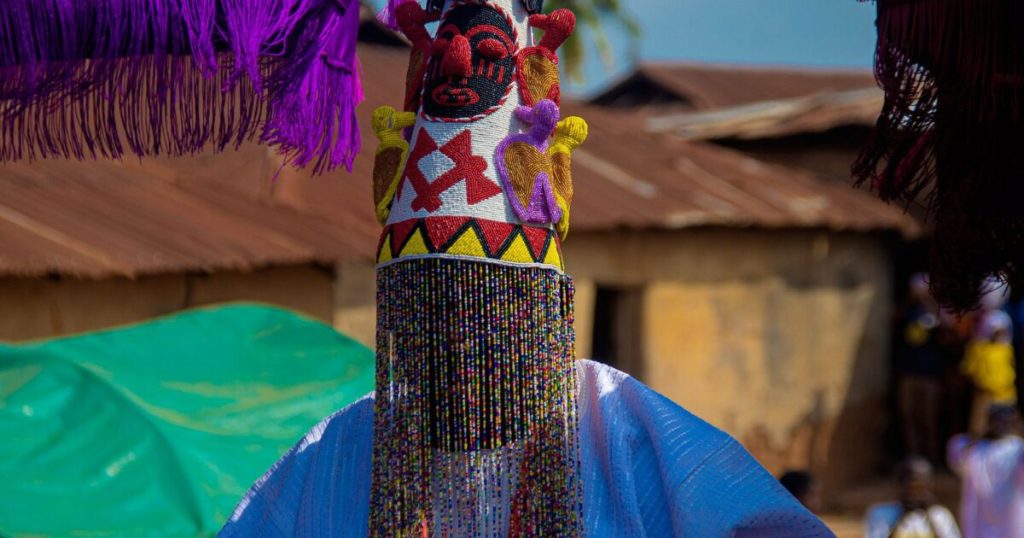The proposed amendment to the Oyo State chieftaincy law, seeking to establish the Alaafin of Oyo as the permanent chairman of the state’s Council of Obas and Chiefs, has ignited a firestorm of controversy. Traditional leaders and stakeholders from Ibadanland and Ogbomosoland have risen in unison to vehemently oppose the bill, arguing that it disregards historical precedent, undermines the principle of equity, and threatens the delicate balance of power among the state’s royal institutions. The proposed legislation, currently under scrutiny by the House Committee on Local Government and Chieftaincy Matters, represents a significant departure from the established rotational system of leadership for the council, a system that has long ensured representation and respect for all the royal stools within the state.
At the heart of the contention lies the proposed hierarchical structure of leadership within the council. The amendment stipulates that in the absence of the Alaafin, the Olubadan of Ibadanland would preside, followed by the Soun of Ogbomoso should both the Alaafin and the Olubadan be unavailable. This prescribed order of succession is viewed by opponents of the bill as a blatant attempt to elevate the Alaafin above other paramount rulers, thereby disrupting the traditional balance of power and potentially sowing discord among the various royal lineages. They argue that such a move is not only disrespectful to the rich history and traditions of other royal houses but also a dangerous precedent that could destabilize the delicate peace that exists among the different communities within the state.
The traditional leaders and stakeholders, represented by Mogajis, Baales, monarchs, the Central Council of Ibadan Indigenes, the Ibadan Compounds Peace Initiative, prominent sons and daughters of Ibadanland, and Mogajis from the Soun Ruling Houses of Ogbomoso, have made their position unequivocally clear. They insist that the rotational chairmanship of the council must be maintained to ensure fairness and equity among all the royal stools in the state. This rotational system, they contend, serves as a crucial mechanism for power-sharing and ensures that no single royal house dominates the council’s affairs. Their opposition is not driven by personal animosity towards the Alaafin but rather by a profound commitment to preserving the established traditions and ensuring harmonious relations among the diverse communities within Oyo State.
Asimiyu Ariori, President of the Ibadan Mogajis, and Nurudeen Akinade, Coordinator of the Ibadan Compounds Peace Initiative, have been particularly vocal in their condemnation of the proposed amendment. They emphasize that their stance is rooted in historical precedent and a desire to safeguard the unity and peace that have long characterized the relationship between the various traditional institutions within the state. They point to the revered legacy of the late Alaafin, Oba Lamidi Adeyemi III, who, despite his long reign and considerable influence, consistently respected the traditions and autonomy of other royal houses. They urge the current Alaafin to emulate his predecessor’s wisdom and tread carefully, respecting the established customs and practices that have ensured peaceful coexistence among the different communities within Oyo State.
The proposed amendment has raised concerns about the potential for increased tension and conflict within the state if the rotational system is abandoned. The stakeholders warn that elevating one royal stool above others could create a sense of resentment and rivalry, thereby jeopardizing the fragile peace that exists between the different communities. They urge the Oyo State House of Assembly to heed their concerns and reconsider the proposed amendment, advocating for the preservation of the rotational leadership model for the Council of Obas and Chiefs. They argue that this is the only way to ensure fairness, equity, and continued harmony among the various royal institutions and the communities they represent.
The ongoing debate over the proposed amendment highlights the complex interplay of tradition, power, and politics within the Oyo State chieftaincy system. While proponents of the amendment may argue that it seeks to streamline the council’s operations and provide clear leadership, opponents view it as a dangerous departure from established norms and a potential threat to the delicate balance of power among the state’s royal houses. The Oyo State House of Assembly now faces the challenging task of balancing these competing interests while ensuring that any changes to the chieftaincy law uphold the principles of fairness, equity, and respect for the rich traditions of all communities within the state. The ultimate decision will have far-reaching consequences for the future of the Oyo State Council of Obas and Chiefs and the broader socio-political landscape of the state.


